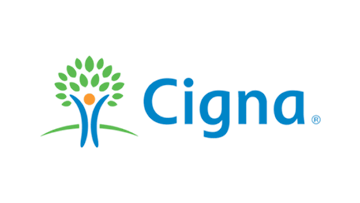
Exploring the Importance of Mental Health Services
Mental health services are a critical component of overall well-being, offering essential support to individuals experiencing a range of emotional and behavioral challenges. In Nampa, Idaho, the demand for quality mental health services has grown significantly as more individuals recognize the importance of addressing mental health concerns. By providing evidence-based therapies and interventions, organizations like Recovery Ways Idaho play a pivotal role in helping people navigate these challenges and lead fulfilling lives.
The diverse services offered in the region not only address common issues such as anxiety and depression but also focus on complex conditions including autism spectrum disorders and developmental disabilities. These services are particularly valuable in promoting positive behavioral change and enhancing the quality of life for clients and their families.
Personalized Approaches to Behavioral Health
A cornerstone of effective mental health services is personalization, tailoring interventions to meet the unique needs of each individual. Recovery Ways Idaho exemplifies this approach, offering a range of services designed to support personal goals and foster resilience. Their methods include individual therapy and family counseling, both crucial in establishing a supportive network around the client.
By utilizing evidence-based practices, mental health professionals in Nampa ensure that their interventions are grounded in the latest research and clinical guidelines. This dedication to providing high-quality care not only improves outcomes for clients but also instills confidence in the community regarding the available mental health services.
Skill-building sessions are another innovative aspect of Recovery Ways Idaho’s offerings, equipping clients with practical tools to manage their conditions effectively. This empowerment helps clients to thrive independently, reinforcing the organization’s commitment to sustained positive change.
Community Impact and Outreach
Mental health services in Nampa, ID, extend beyond individual care; they are integral to building resilient communities. Recovery Ways Idaho recognizes the importance of community outreach and actively works to raise awareness about mental health challenges and solutions. This proactive approach not only reduces stigma but also encourages more people to seek help when needed.
Addressing Common Mental Health Challenges
Many individuals in Nampa face common mental health challenges such as anxiety and depression. Recovery Ways Idaho addresses these prevalent issues through a comprehensive, client-centered approach that prioritizes compassionate care. By employing a diverse team of trained professionals, Recovery Ways Idaho ensures that clients have access to specialists who understand their particular needs and can provide targeted interventions.
The organization also offers support for developmental disorders, working with individuals and families to develop skills and strategies that promote independence and improve everyday functioning. These services are crucial for clients who require assistance in navigating life’s challenges due to their unique circumstances.
The Role of Evidence-Based Practices
Evidence-based practices are at the core of effective mental health services, guiding interventions and ensuring that clients receive care that is scientifically validated. Recovery Ways Idaho places a strong emphasis on remaining current with advancements in the field, allowing their clinicians to deliver the highest standard of care. This commitment to quality is reflected in the positive outcomes reported by many clients.
By staying informed about the latest research and clinical innovations, practitioners in Nampa can offer treatment plans that are both effective and adaptable to each client’s changing needs. Continuous professional development and training ensure that staff are well-equipped to handle the complexities of mental health care.
Creating a Welcoming and Accessible Environment
The physical and emotional environment of a mental health service provider is essential for fostering a sense of safety and support among clients. Recovery Ways Idaho’s facility is designed to be welcoming and accessible, encouraging clients to engage openly with their treatment. This environment helps to mitigate any initial apprehension or fear associated with seeking mental health services.
Accessibility is particularly important in expanding the reach of mental health services in Nampa, ID, ensuring that help is available to all individuals, regardless of their background or current circumstances. This inclusivity reflects the core mission of promoting mental wellness across the community.
Creating such environments also involves a commitment to cultural competence, recognizing and respecting the diverse cultural backgrounds of clients. By doing so, organizations not only enhance the therapeutic experience but also strengthen trust and rapport with the community.
Continuous Innovation in Mental Health Care
In the rapidly evolving field of mental health care, continuous innovation is crucial for meeting the dynamic needs of the population. Organizations like Recovery Ways Idaho are at the forefront of incorporating new technologies and methodologies to improve service delivery. This forward-thinking approach ensures that clients have access to the most effective and efficient care possible.
Telehealth services have become an increasingly popular option, offering clients the flexibility to receive support from the comfort of their homes. This innovation has expanded access to mental health services in Nampa, ID, allowing those who may face logistical barriers to still engage with professionals and receive the help they need.
Innovative therapies, such as cognitive-behavioral therapies combined with technology-based interventions, are also part of Recovery Ways Idaho’s offerings, illustrating their commitment to providing cutting-edge solutions that cater to modern patient needs.
The Commitment to Professional Development
Professional development is a key aspect of maintaining high-quality mental health services. Recovery Ways Idaho invests in ongoing training and education for its staff, ensuring that practitioners are well-versed in the latest treatment modalities and best practices. This focus not only enhances the skills of individual providers but also elevates the standard of care available to clients.
Staff are encouraged to participate in workshops, seminars, and other educational opportunities to keep their knowledge up-to-date. This dedication to learning reflects the organization’s belief in the importance of continuous improvement and adaptation in the face of new challenges in the mental health field. The benefits of this approach are evident in the high satisfaction rates and successful outcomes reported by clients and their families.
Through this investment in education, Recovery Ways Idaho demonstrates a long-term commitment to excellence in serving the mental health needs of the Nampa community.
Embracing a Client-Centered Philosophy
At the heart of effective mental health services Nampa ID is a client-centered philosophy, wherein the individual needs and preferences of clients guide the therapeutic process. Recovery Ways Idaho embraces this model, emphasizing the importance of listening to and collaborating with clients to develop personalized treatment plans. This approach fosters an atmosphere of respect and empowerment, enabling clients to take an active role in their mental health journey.
Through continuous dialogue and feedback, clinicians can adjust interventions to better align with client goals, ensuring that each individual receives the most responsive and effective care possible. The success of this philosophy is reflected in the improved outcomes and higher levels of client satisfaction among those who seek mental health services in Nampa, ID.
What are the top 3 mental health issues in Idaho?
In Idaho, as in many parts of the United States, anxiety, depression, and substance abuse are among the most prevalent mental health challenges. Let’s dive into why these issues are so significant and how they are being addressed:
Anxiety: With the fast pace of modern life, many individuals in Idaho experience anxiety, which can manifest as persistent worry, fear, or nervousness about everyday activities. Organizations like Recovery Ways Idaho offer personalized therapy sessions that help clients manage anxiety through evidence-based techniques, such as cognitive-behavioral therapy (CBT).
Depression: Depression affects people of all ages and can significantly impact daily life. Treatments at Recovery Ways Idaho often involve a combination of individual therapy and skill-building sessions that equip clients with strategies to cope with sadness and improve their overall well-being.
Substance Abuse: This is a growing concern, often intertwined with other mental health issues. Addressing substance abuse requires comprehensive care strategies, including counseling and support groups, which are readily available in Nampa, ID, through facilities like Recovery Ways Idaho.
By tackling these prevalent issues with tailored interventions, Recovery Ways Idaho helps individuals in Idaho find effective pathways to recovery and resilience.
What is the mental health services tax?
The concept of a mental health services tax typically refers to a levy imposed by local or state governments to fund mental health programs. In some regions, these funds are vital for supporting public mental health services, ensuring that all community members have access to necessary care. This funding can help facilities like Recovery Ways Idaho to expand their services and reach more individuals in need.
By generating resources through such a tax, communities can subsidize the cost of mental health services, making them more affordable for residents. This approach is instrumental in sustaining ongoing programs and launching new initiatives aimed at enhancing mental health care accessibility.
Reflecting on the importance of community support for mental health, what changes or improvements would you like to see funded in your area?
Why should mental health care be free?
The argument for free mental health care stems from the belief that mental wellness is as crucial as physical health. Removing financial barriers can ensure that everyone has equal access to the support they need. Imagine someone struggling with severe anxiety but unable to afford therapy–that’s a gap society needs to bridge. By making mental health care free, we can reduce stigma and encourage more people to seek help before their conditions worsen.
Organizations like Recovery Ways Idaho advocate for accessible mental health care through their commitment to providing a welcoming environment and employing sliding scale fees for services, making them more affordable for all income levels. Such efforts exemplify the potential benefits of more widespread mental health support.
What impacts do you think free mental health services could have on broader society, both economically and socially?
How can I improve my mental and emotional health?
Improving your mental and emotional health involves a multifaceted approach, and here are a few practical steps you can take based on expert insights:
Understand and express your emotions: Acknowledge your feelings and find healthy ways to express them, whether through journaling, art, or talking to someone understanding.
Build a support system: Surround yourself with friends, family, or support groups who uplift you and understand your journey. Recovery Ways Idaho emphasizes the importance of such networks in their therapy and counseling services.
Practice mindfulness and relaxation techniques: Activities like meditation, yoga, or deep-breathing exercises can significantly impact your stress levels and emotional resilience. These techniques are often incorporated into therapeutic practices offered by mental health professionals.
Remember, small changes can make a big difference, and professional guidance can always be a supportive part of your journey to improved mental well-being.
What impact does Recovery Ways Idaho have on the community’s mental health?
Recovery Ways Idaho plays a transformative role in its community by offering comprehensive mental health services that address both common and complex challenges. Through personalized therapy and skill-building sessions, they empower individuals to regain control over their mental wellness. Their efforts in community outreach are equally significant, as they work to raise awareness and reduce stigma around mental health issues.
By creating accessible and welcoming environments, Recovery Ways Idaho not only improves individual lives but also builds a more resilient community. Their focus on evidence-based practices ensures that clients receive the best possible care, reflecting their commitment to the overall mental well-being of Nampa and its surrounding areas.
How do you think increased mental health awareness impacts community resilience?
Why are evidence-based practices crucial in mental health care?
Evidence-based practices (EBPs) are vital because they ensure that mental health interventions are backed by scientific research, offering proven results for clients. For example, cognitive-behavioral therapy, an EBP often used at Recovery Ways Idaho, has been extensively studied, showing significant benefits in treating anxiety and depression.
By using EBPs, mental health professionals can be confident in the effectiveness of their treatments, which enhances client trust. It also allows for consistency in care quality, ensuring that all clients, regardless of provider, receive high-standard support.
Using evidence-based models, how do you think mental health services can adapt to meet evolving client needs?
What are the benefits of a client-centered philosophy in mental health care?
A client-centered philosophy shifts the focus onto the individual’s unique needs, preferences, and goals during therapy. This approach enhances engagement and satisfaction, fostering an environment where clients feel heard and empowered. For instance, at Recovery Ways Idaho, developing personalized treatment plans encourages clients to be active participants in their recovery journey.
By prioritizing a client’s input, therapists can adapt interventions to better align with personal experiences, leading to more effective outcomes. It also helps build a strong therapeutic alliance, essential for successful mental health care.
Reflecting on your experiences, how important do you think it is for clients to have input in their treatment plans?
Mental Health Resources
- National Institute of Mental Health – The National Institute of Mental Health offers research-based information on mental health disorders, treatments, and support resources.
- Substance Abuse and Mental Health Services Administration – SAMHSA provides information and resources on mental health and substance abuse issues, as well as treatment locator tools.
- Psychology Today – Psychology Today offers articles, therapist directories, and mental health resources for individuals seeking information and support.
- Centers for Disease Control and Prevention – Mental Health – The CDC provides data, statistics, and resources related to mental health issues and promoting mental well-being.
- MentalHealth.gov – MentalHealth.gov offers information on mental health conditions, how to get help, and resources for individuals, families, and communities.
- National Alliance on Mental Illness – NAMI provides advocacy, support, and education for individuals and families affected by mental illness, as well as resources for finding local support groups and services.




